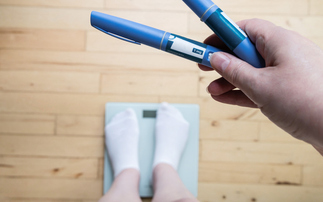The vast majority of GPs believe that helping patients to stay in or return to work is an important part of their role.
The findings came from Department for Work and Pensions research that also revealed a significant majority had felt obliged to give sickness certificates for reasons that were not strictly medical.
Overall 1,665 GPs responded to the DWP's GP's attitudes to patients' health and work in 2012 survey and it appears that attitudes to the Fit Note had improved with time and familiarity of its demands, compared to a similar survey in 2010.
Other key findings included:
- GPs continued to believe, almost universally, that work was beneficial for health and that it was important for them to be actively involved in helping patients return to work;
- GPs' knowledge of the benefits system was still poor, but had improved since 2010;
- Levels of service provision for good local advice and support in returning staff to work remained low in 2012.
In all, less than 2% of GPs disagreed that work was generally beneficial for people's health, a statement reinforced by 93.1% agreeing that worklessness was generally detrimental to people's health.
GPs generally felt that they had a proactive role to play: 90.2% agreed that helping patients to stay in or return to work was an important part of their role, while just over two-thirds (67.7%) agreed that GPs had a responsibility to society to facilitate a return to work.
And a little over three-quarters of GPs (76.1%) agreed that staying in or returning to work was an important indicator of success in the clinical management of people of working age.
Nearly 80% of GPs disagreed that the patient had to be fully recovered before they would recommend a return to work: however, more than three-quarters (77.4%) agreed that they felt obliged to give sickness certificates for reasons that were not strictly medical.
GPs in 2012 were also more likely (in varying degrees) to agree that the fit note had:
- improved the quality of their discussions with patients;
- improved the advice they gave to patients;
- increased the frequency with which they recommended a return to work;
- and helped their patients make a phased return to work.
In conclusion, the DWP acknowledged that was still work to do to support GPs to make best use of the fit note's full potential, as well as increasing their awareness of, and their patient's access to, local advice and support about a return to work.
"Some of these issues may be addressed by the health and work assessment and advisory service proposed in the recent government response to the sickness absence review, or by the revised guidance for GPs on how to use the fit note," the report noted.










